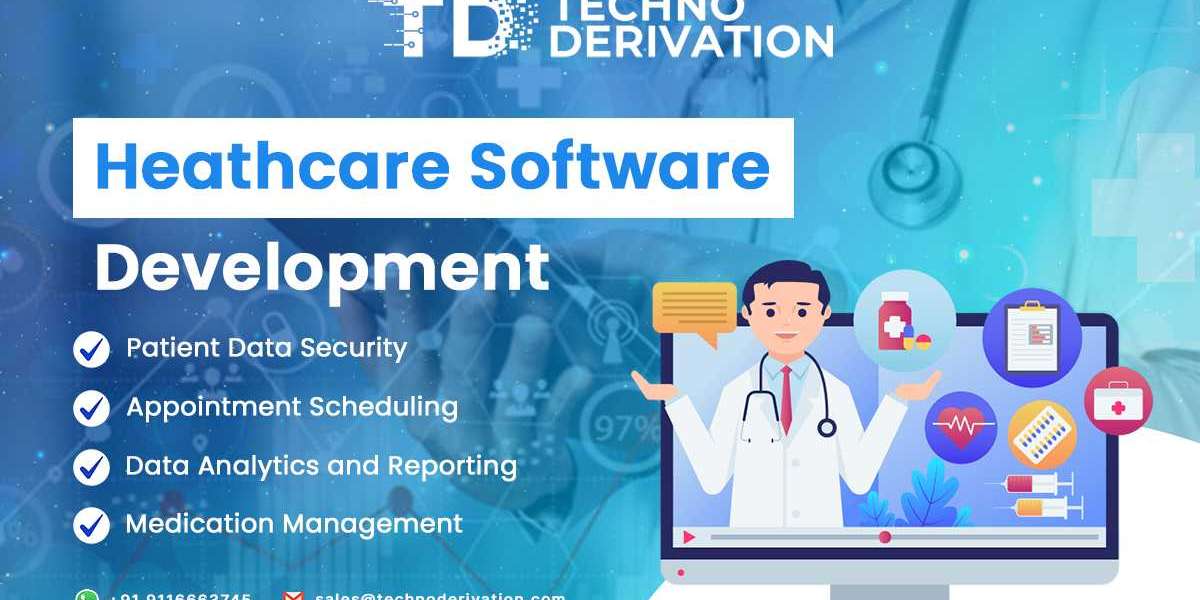In today’s rapidly evolving healthcare landscape, the need for efficient and effective management solutions is paramount. A Healthcare Software Development Company plays a crucial role in transforming traditional healthcare practices by providing innovative, user-friendly software that streamlines operations, enhances patient care, and improves overall management. This article explores how tailored healthcare software can simplify processes and create a more seamless experience for both healthcare providers and patients.
The Importance of User-Friendly Software
Healthcare providers face numerous challenges daily, from managing patient records to ensuring compliance with regulations. The complexity of these tasks can lead to inefficiencies, errors, and ultimately, compromised patient care. A Healthcare Software Development Company focuses on creating solutions that prioritize user experience. By designing intuitive interfaces and simplifying workflows, these companies enable healthcare professionals to focus more on patient care rather than administrative tasks.

User-friendly software is essential for several reasons:
Enhanced Accessibility: Healthcare software should be easy to navigate, allowing users to access the information they need quickly. This is especially important in emergency situations where time is of the essence. A well-designed software solution ensures that critical data is readily available at the fingertips of healthcare providers.
Improved Training and Onboarding: The healthcare sector often faces high turnover rates, making efficient training essential. Software that is user-friendly reduces the learning curve for new employees, allowing them to adapt quickly and start contributing to patient care sooner.
Increased Engagement: User-friendly software encourages healthcare professionals to engage with the system fully. When users find a software solution intuitive and straightforward, they are more likely to utilize its features effectively, resulting in better data management and improved patient outcomes.
Key Features of Effective Healthcare Software Development
To simplify healthcare management, a Healthcare Software Development Company incorporates several key features into their software solutions:
Electronic Health Records (EHR): Modern EHR systems facilitate the easy storage and retrieval of patient records. By integrating features like appointment scheduling, billing, and prescriptions, these systems create a comprehensive platform for managing patient information.
Telemedicine Capabilities: The rise of telehealth has transformed the way healthcare is delivered. User-friendly telemedicine solutions enable patients to consult with healthcare providers from the comfort of their homes, increasing access to care and reducing waiting times.
Data Analytics: Robust analytics tools allow healthcare providers to gain insights from patient data, helping them make informed decisions. A user-friendly interface for these analytics tools ensures that healthcare professionals can easily interpret data trends and apply them to improve patient care.
Interoperability: Effective healthcare software should facilitate seamless communication between different systems and providers. Interoperability ensures that patient information flows smoothly across various platforms, enhancing care coordination and reducing the risk of errors.
The Role of Customization
Every healthcare organization has unique needs and challenges. A top-notch Healthcare Software Development Company understands this and offers customization options to tailor their software solutions accordingly. Customization ensures that the software aligns with the specific workflows, regulations, and requirements of each healthcare facility.
Whether it’s adapting the software to meet specific compliance standards or integrating existing systems, customization enhances the software's usability and effectiveness. This flexibility is crucial in an industry where regulations and technologies are constantly evolving.
Conclusion
The future of healthcare management lies in user-friendly software solutions that simplify processes and enhance patient care. Partnering with a reputable Healthcare Software Development Company is essential for healthcare providers looking to modernize their operations. By embracing innovative technologies and focusing on user experience, these companies are paving the way for more efficient, effective, and patient-centered healthcare delivery.
Investing in user-friendly healthcare software is not just about improving management; it’s about transforming the way healthcare is delivered. By streamlining operations, facilitating communication, and enhancing patient engagement, healthcare software is set to revolutionize the industry, making healthcare management simpler and more effective than ever before.








